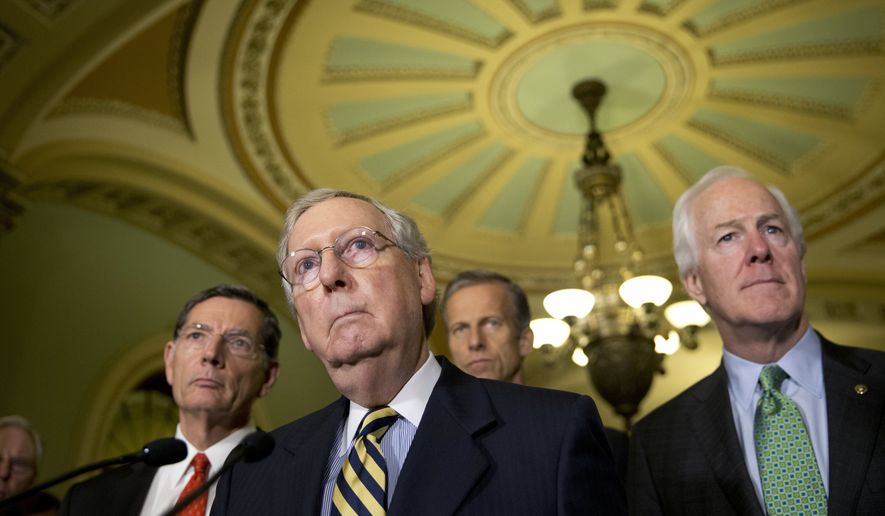A Republican-led effort to broaden the FBI’s access to individuals’ internet data was defeated in the Senate Wednesday, but is likely to be resurrected under pressure from those seeking to enhance security and surveillance measures in the wake of the Orlando nightclub shooting.
An amendment fell just two votes short of the 60 it needed to advance as part of the larger Commerce, Justice, Science and Related Agencies Appropriations Act. Senate Majority Leader Mitch McConnell changed his vote to oppose the amendment at the last minute in a procedural maneuver that allows him to revive the amendment, and filed a motion for reconsideration.
A spokesman for the Kentucky Republican said Wednesday that a potential reconsideration of the proposal has not been scheduled.
The amendment would expand the scope of data that the FBI can access via national security letters — administrative subpoenas that require no judicial oversight. Specifically it would authorize the FBI, during the course of national security investigations, to demand that technology companies provide users’ internet browser history and internet protocol address — information that would allow investigators to see what websites a person visits, how much time is spent on a particular site and the location of the internet user.
The proposal would not give investigators warrantless access to the content of emails, said the amendment’s sponsor, Sen. John McCain, Arizona Republican.
Stating that it is unclear whether this measure could have helped prevent the mass shooting at an Orlando nightclub, in which 49 people were killed and 53 others injured, Mr. McCain said it was the opinion of law enforcement and counterterrorism officials that access to such information could prevent other attacks.
“This tension will go on between this right of privacy and national security, and I think there are gray areas that we need to debate,” Mr. McCain said ahead of the failed vote. “But this issue is a no-brainer.”
The gunman who carried out the attack on a gay nightclub pledged allegiance to the leader of the Islamic State during the shooting, but is said to have self-radicalized and is not believed to have carried out the attack on the order of any outside terrorist group. He previously came under investigation by the FBI for potential terrorist ties in 2013, but no criminal charges were ever filed and the investigation was closed.
The spending bill amendment is the latest attempt by lawmakers to broaden the FBI’s warrantless access to internet users’ data since FBI Director James B. Comey earlier this year characterized the need for such authority as a top legislative priority. Similar measures have also been brought up in an amendment to an email privacy bill before the Senate Committee on the Judiciary and as a provision in the 2017 Intelligence Authorization bill.
Civil liberties and privacy advocates, as well as technology companies, have been critical of such efforts, arguing that it would dramatically broaden the FBI’s ability to collect sensitive information about individuals.
“I think in the past we’ve seen how, in the wake of a tragedy, there can be a push to get legislation through that [has] really far-reaching implications for privacy,” said Neema Guliani, legislative counsel for the American Civil Liberties Union, referencing the original passage of the Patriot Act. “We’re very concerned there could be knee-jerk reaction to push through this legislation that has significant implications on Fourth Amendment rights.”
• Andrea Noble can be reached at anoble@washingtontimes.com.




Please read our comment policy before commenting.